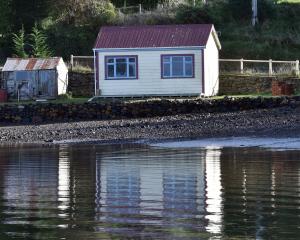A new University of Otago study has shown many people reduce the effectiveness of medicines through poor storage.
The study by School of Pharmacy undergraduate researchers found storing medication in bags, bathrooms or even in luggage on flights can make it too hot, humid or cold for safe use.
"There are lots of rules about storing pharmaceuticals, but there's less known about what happens when people take their medicines home," one of the lead researchers, Dr Clare Strachan, said yesterday.
Kitchens and bathrooms were the most popular rooms for storing medicines, yet one bathroom reached 100% humidity, while a kitchen hit 85%.
Excess humidity could cause chemical degradation or physical changes, affecting the efficacy and safety of the medicine, Dr Strachan said.
A temperature logger placed in a black backpack reached 67C on a 15C day, while a car got up to 55C.
"We were really surprised about how hot it got," Dr Strachan said.
"Of particular concern are proteins, such as insulin, which is regularly carried round in backpacks and is likely to degrade within hours at temperatures above 60C. This can be dangerous.
"Insulin that has been heated too much does not work to lower blood sugar levels in people who need to control their diabetes."
The study also found the temperature in cargo holds in planes could dip below freezing point on international flights and recommended carrying medicines, particularly liquid and protein medicines such as insulin, in the cabin of the plane, rather than in checked luggage.
"A lot of people keep medicines in a place where they will remember to take them, which is a good thing," social pharmacy academic Professor Pauline Norris said yesterday.
"But it's also important to store them where they will not be degraded by heat, humidity or cold."
People should consult their pharmacist if they were unsure how to store their medicines, Prof Norris said.












